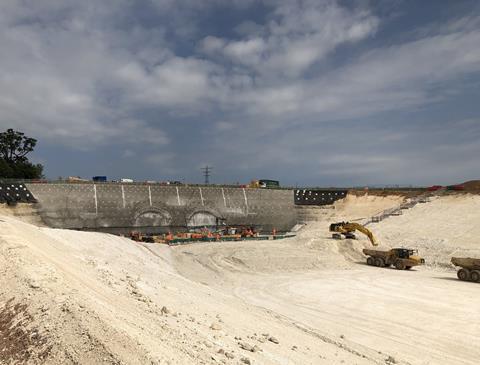Funding from Innovate UK seeks to reduce carbon emissions across infrastructure projects

The team working on HS2’s London tunnels has won funding to trial clay as a cement alternative.
The Skanska Costain Strabag joint venture (SCS JV) will replace carbon-intensive Portland cement with repurposed London clay after receiving funding from Innovate UK.
SCS JV is working alongside Arup, Tarmac, the University of Leeds, and Sika UK, along with Expedition Engineering and the Mineral Products Association, on the HS2 permanent works.
Data from the original trial show that heated clay, which is extracted from the tunnelling activities, is a viable alternative to cement.
Although more research is needed, the preliminary trial results showed considerable carbon reduction figures and the potential to save tens of millions of pounds on a project of similar scale to HS2.
Innovate UK is investing £3.2 million in seven projects to help propel the decarbonisation of the nation’s concrete industry.
Apostolos Tsoumelekas, a materials engineering manager who has been heavily involved in developing the product, said: “This innovation was first sparked by a discussion with an expert at Arup, who had been researching the applications of calcined clays in concrete.
“Working together with our customer and the supply chain, we have been able to help turn this idea into reality.
“The clay that is excavated from the HS2 tunnels is essentially a waste product.
“We have developed a process that calcines the clay and grinds it to a powder, transforming it into a useful resource which can then be added to concrete, replacing Portland cement.
“The results have been impressive and, hopefully, if it’s scaled up, it could really help speed up the adoption of low-carbon concrete for commercial use.”
















No comments yet